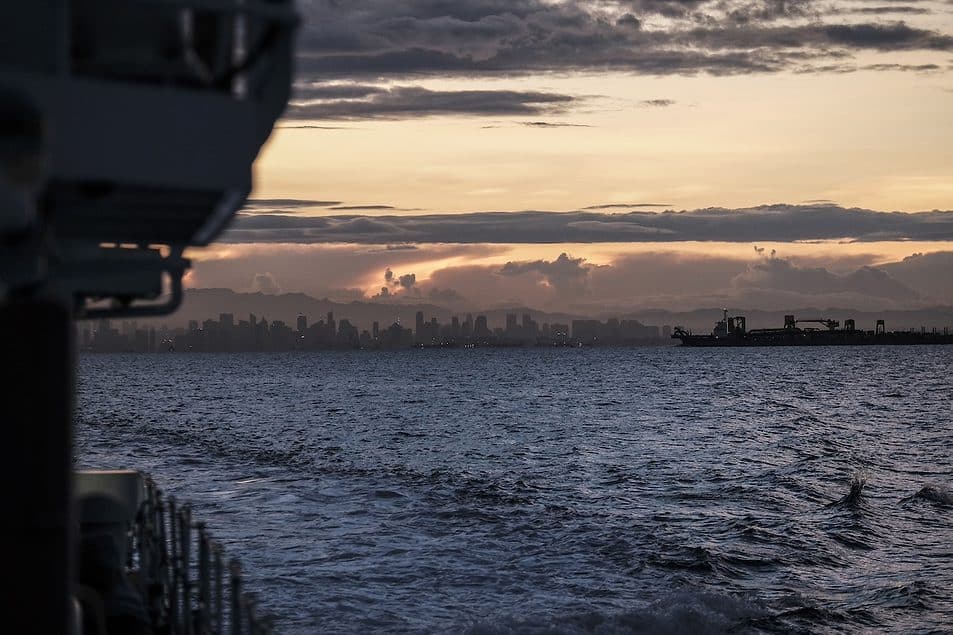Radioactive Cargo Stuck Off Philippines Coast
Ship with Radioactive Zinc Dust Stuck Near Philippines Port

ship carrying 23 containers of radioactive zinc dust is stranded off the coast of the Philippines, unable to unload due to a lack of facilities willing to accept the hazardous material. Carlo Arcilla, director of the Philippine Nuclear Research Institute, confirmed that port authorities in Manila will not allow the ship to offload until a local government agrees to take custody of the cargo. While the containers pose minimal risk to public safety, the situation highlights ongoing concerns about radioactive materials in Southeast Asia.
Complexities Surrounding Radioactive Material Disposal
The ship, which arrived from Indonesia, has become a focal point in the growing issue of radioactive contamination in the region. Arcilla stated that the containers do not pose a danger to the public, as the radiation levels outside the containers are very low. The crew aboard the ship is reported to be in good health. However, the inability to offload the cargo adds to the complexities surrounding the management of radioactive materials in Southeast Asia.
This incident follows an investigation in Indonesia that uncovered cesium-137, a radioactive isotope, at a metal-processing hub in western Java. The discovery prompted Indonesia to halt imports of scrap metal earlier this month. Cesium-137 is known for its use in medical devices and gauges, but exposure can increase cancer risks, according to the U.S. Centers for Disease Control and Prevention.
The current predicament began when the U.S. Food and Drug Administration detected trace amounts of cesium-137 in frozen shrimp shipments from a major Indonesian prawn company, leading to product recalls by retailers like Walmart. The zinc powder shipment now stranded off Manila was exported to Indonesia by Zannwann International Trading Corp., a Chinese trading firm. Following the cesium-137 detection, the shipment was returned to Manila.
Arcilla noted that the zinc dust was sourced from SteelAsia Manufacturing Corp. and another steel firm, with radioactivity only detected at SteelAsia’s recycling plant in Batangas province. Despite this, SteelAsia has distanced itself from the contaminated zinc powder and has voluntarily suspended operations at its facility as a precautionary measure.
Urgent Need for Disposal Solutions
The priority now is to find a suitable site for the disposal or entombment of the 23 containers, as well as to address the radioactive materials found at SteelAsia’s facility and Zannwann’s warehouse. Arcilla emphasized that the amount of contaminated material could be significant. He also mentioned that there have been no previous incidents of radioactivity detected in earlier shipments from Zannwann to Indonesia, leaving the connection between the current shipment and the cesium-137 contamination in question.
As authorities work to resolve this pressing issue, the situation underscores the need for effective management and disposal strategies for radioactive materials in the region. The Philippine Nuclear Research Institute continues to seek solutions to ensure public safety and environmental protection.
